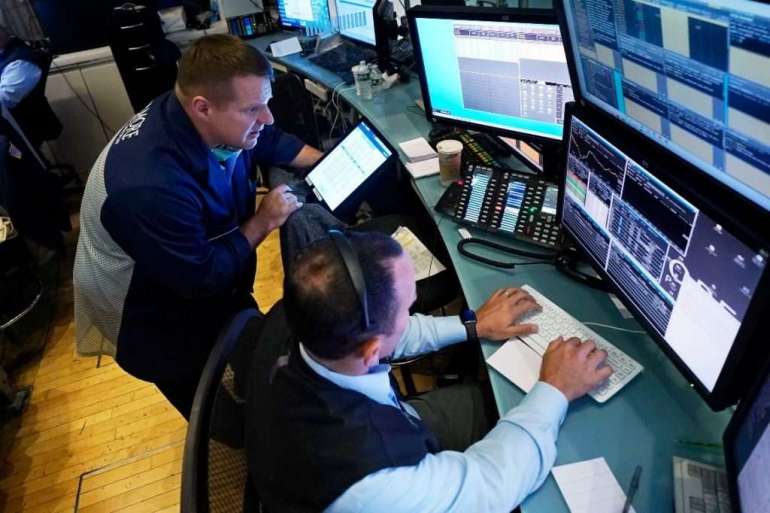Fed signals plan to pull back economic support even as virus looms

“The sectors most adversely affected by the pandemic have improved in recent months, but the rise in Covid-19 cases has slowed their recovery,” Fed Chair Jerome Powell said after the meeting, in what might have been his final test ahead of President Joe Biden’s decision on whether to reappoint him.
Still, Powell told reporters that there has been nearly enough job growth to satisfy central bank policymakers that they could start to slow their monthly purchases of U.S. government debt and mortgage-backed securities, perhaps as early as their next meeting in November. Those bond purchases — totaling a staggering $120 billion a month — are intended to supercharge the central bank’s efforts to keep borrowing costs low while the economy recovers.
The Fed’s meeting came amid jitters in the stock market over the past couple of weeks as investors nervously eye the legislative drama in Washington, where the government will run out of funding by the end of the month and the debt ceiling needs to be raised over the next few weeks to avoid defaulting on bills the U.S. has already racked up. Stocks rose on Wednesday but recorded their gains before the Fed announcement.
Chinese real estate giant Evergrande’s debt woes have also stoked market fears as investors try to sort out how powerful a ripple effect there might be in the U.S. Powell said U.S. financial institutions don’t have a lot of exposure to the company but added that Evergrande’s troubles could hurt investor confidence globally.
Despite Powell’s generally upbeat tone on the economy, Fed officials expect unemployment to be slightly higher than they’d previously expected, forecasting it will drop to 4.8 percent by the end of the year, rather than their June projection of 4.5 percent. They also acknowledged that inflation has been stronger than expected this summer, predicting that price levels will rise 3.7 percent this year, excluding volatile food and energy prices, compared to the June projection of 3 percent.
Still, they expect inflation to drop back to 2 percent over the next couple of years, consistent with their messaging that the factors driving rapid price growth are only temporary.
“Factors related to the pandemic, such as caregiving needs and ongoing fears of the virus, appear to be weighing on employment growth,” Powell said. “These factors should diminish with progress on containing the virus, leading to more rapid gains in employment.”
He said the central bank isn’t seeking any further rise in inflation — it aims to have price levels grow an average of 2 percent over time, and inflation has already come in hotter than expected thanks, in part, to pandemic-induced supply chain disruptions.
So the Fed is now watching the labor market closely as it tries to get closer to full employment, an economic state where enough people have jobs that companies have to raise wages to attract workers.
Powell emphasized that the Fed isn’t declaring victory yet on the labor market, which still has further to go before the central bank believes it has reached full employment. He also said the Fed likely wouldn’t completely cease its asset purchases until the middle of next year, and an interest rate hike would only come after that process is done.
He also said the Fed’s asset purchases aren’t as useful as they were at the onset of the pandemic last year. Unspoken was the fact that the amount of cash that the central bank has pumped into the economy through its bond buys has begun to cause logistical headaches where banks have more deposits than they can handle. That’s meant the Fed has had to soak up some of that cash back up.
Powell declined to comment on whether he has spoken with the White House about his possible reappointment to another four-year term as chair, but he did offer an olive branch to progressives who have criticized him for financial rules that were rolled back under his watch.
He said he defers to the person who holds the Fed’s top regulatory job, vice chair of supervision, a position that will open up next month. Observers have speculated that Biden might appoint a tougher regulator in that role but also keep Powell.
“I respect that’s the person who will set the regulatory agenda going forward. I would accept that,” the Fed chair said. “It’s fully appropriate for a new person to come in and look at the current state of regulation and supervision and suggest appropriate changes, and I welcome that.”